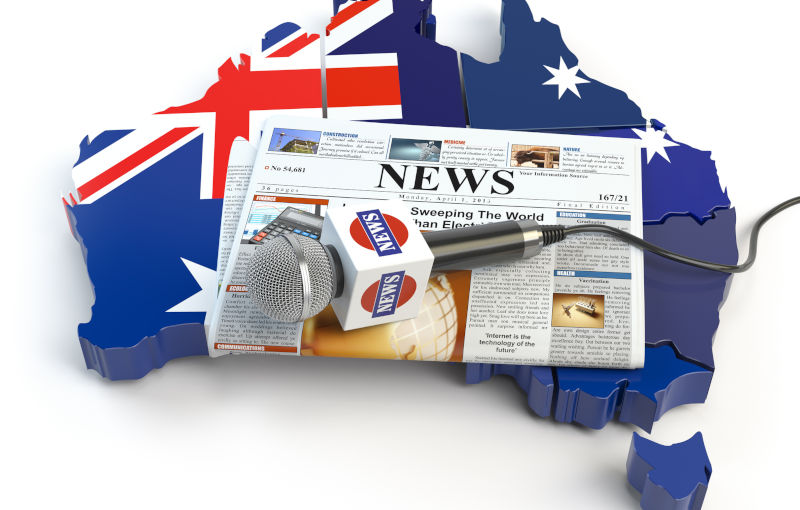An Australian national is locked up in a Beijing jail for five years. Led by Sky News, the media maintains his innocence, based on nothing more than his word… and the “fact” that innocents are locked up because the Chinese police are jealous.
The Sky News innocence project
Australian national Matthew Radalj was, according to a number of media reports, imprisoned in China for almost five years on theft charges. His story, in an exclusive interview, was picked up by Sky News host Cheng Lei (17/01/25). A former presenter on China’s state-owned English television service, Lei was incarcerated in China from 2020 until 2023. Her publicly disclosed charges were vague, the Chinese Government saying she was “suspected of carrying out criminal activities endangering China’s national security” whilst working for state television.
As Lei’s trial — if it was that — was conducted behind closed doors, there is no way of knowing what evidence prosecutors presented at the proceedings.
Upon returning to Australia in late 2023, Lei picked up her job at, the Murdoch-owned Sky News. With justification, the Chinese-born journalist has pushed the Murdoch anti-China line, writing in March last year that, former prime minister Paul Keating was effectively aiding and abetting the anti-democracy movement by holding a meeting behind closed doors with Chinese foreign minister Wang Yi.
The issue is that Lei willingly worked for China’s state-owned propaganda department and did not for years express any concern over foreigners detained in China. Now, as is her entitlement, she rails against the regime which once employed her – an authoritarian state that imposes strict censorship over the media. This does not make her an impartial commentator on China.
Her exclusive tells just one side of the story, that of Radalj’s, with zero evidence to corroborate his claims; it is a classic “bad China” write-up. It’s reported that Radalj’s case began when he took his phone to be repaired at an electronics market in Beijing and, when he returned, a heated dispute over the price of repairs and ownership of the phone ensued. Security guards, and eventually the police, were called in by the shop owner.
Lei reports he was extorted, set on by security guards who tasered him and beat him up. She writes, “Mr Radalj was told by police ‘you robbed first’” and “this isn’t Australia, you will pay for what you did here in China”.
“They repeatedly told him that it wasn’t time yet for him to see a lawyer.
“‘I was beaten with fists for two days and nights in the Maizidian police station by the police officers, I wasn’t allowed food or water or any contact with family/ legal representation or my embassy’”.
No corroborating evidence is presented to back this up, including what might have been a far more convincing report if comment was sought from the Department of Foreign Affairs and Trade. When any Australian is locked up in a foreign nation, DFAT should be the first port of call for journalists writing up the story.
Radalj’s account of events is presented as fact when, in reality, these are his own assertions. The Sky News story should have qualified each of his assertions with “Radalj alleges”. In the context of reporting on criminal matters in Australia, it’s hammered home to all journalists to differentiate between facts and allegations.
Sky News goes on to offer a totally absurd theory as to why Radalj was arrested and charged, saying: “The police were jealous because Mr Radalj ran a successful [sportswear] business that had revenues of over $30,000 AUD per month.”
How would random police officers attending the scene of an alleged theft know that Radalj ran a successful business?
There’s no evidence to support Radalj’s assertion that he ran a sportswear business — not so much as a name for the business or its location — the only online references to his professional experience is as a cocktail barman with high-end establishments in Hong Kong and Macau.
This week Nine Newspapers (17/02/25) picked up the Radalj story and correspondent Lisa Visentin did a significantly better job of differentiating between fact and Radalj’s allegations. Nine advances the story by referring to squalid conditions inside Chinese jails where inmates are forced to work eight hours per day for virtually no pay and are often the victims of one-sided plea deals in order to secure shorter sentences.
If that sounds familiar, Nine has just described what could easily be the American judicial and prison system. American prisons are overcrowded, prison labour is mandatory in almost all states and every second day an inmate in a US prison is murdered, with many thousands more stabbed or severely beaten up on an annual basis.
Prisons are not nice places, but to suggest Chinese prisons have significantly worse conditions than those in other countries, particularly our steadfast ally the United States, is a stretch.
Nine’s story points out that 64 Australians are currently serving prison time in China, couched in terms that suggest they are the victims of persecution rather than the perpetrators of crime. ABS data shows, as at 30 June 2024, there were 264 Chinese-born prisoners in Australian jails. In balanced coverage of the plight of Australians locked up in China, the fact that there’s four times as many Chinese in Australian prisons might rate a mention.
Flaring up tensions in the sky
It’s widely reported that last week Chinese jet fighters released flares across the front of an RAAF aircraft. The aircraft in question is a P-8A Poseidon, which is not a run of the mill aircraft, it is a spy plane, furthermore, a spy plane flying very close to Chinese airspace in the South China Sea. The ABC reports (15/02/25) the aircraft was performing “routine surveillance” of hotly contested waters on China’s doorstep.
Nine Newspapers (13/02/25) reported the incident quoting from both the Australian Defence Force and Chinese Foreign Ministry in its story. Nine calls the P-8A Poseidon a “patrol aircraft”, when clearly it is a surveillance aircraft. What the mainstream media constantly ignores in these stoushes is the question of why the RAAF and Royal Australian Navy spend so much time operating on the periphery of Chinese territory. Furthermore, what is routine about surveilling our biggest trading partner?
Defence reporter at The Australian (16/02/25), Ben Packham, properly identified the P-8A Poseidon as a surveillance aircraft; his colleagues at other media outlets should have done the same.
In what appears to be a response to the Australian military skirting around China’s waters, three Chinese naval ships are navigating down the east coast of Australia reportedly in international waters 150 nautical miles from the mainland. So far, the mainstream media reporting has been measured on that development.
Jumping on China manufacturer
The magistrates court in Hobart has heard that a Chinese supplier of inflatable castles is a “bunch of crooks” as the operator of the castle faces charges for the death of six children after the castle was violently lifted by a freak wind gust at a primary school in Devonport in December 2021.
Given it is a matter before the courts, the media has been reasonable in its reporting of this tragedy and circumstances around the failure of the inflatable castle. However, The Australian (17/02/25) links its story, “2021 Tasmanian jumping castle tragedy: defence blames supplier but prosecution points to operator failures”, to an earlier story that reports on court evidence that, “Chinese manufacturers of a jumping castle involved in a 2021 tragedy that killed six children have revealed they do not always provide a full complement of pegs with the inflatable”.
The headline of that story appears to apportion a measure of blame for the tragedy on the Chinese manufacturers, when the prosecution has strongly argued sole responsibility for the failure lies with the operator, which held its inflatable castle in place with just four pegs instead of the recommended eight. Lawyers for the operator argue the castle arrived from China with just four pegs; the prosecution says it was the operator’s responsibility to source additional pegs to make sure it was at least the recommended eight.
Unlike the Australian locked up in Beijing, this story has been far more responsibly reported. The fact is that part of defence for the company that hired out the inflatable castle, Taz-Zorb, is based on prejudices against, and stereotypical characterisations of, China. It’s blame shifting from those charged with the safety of the castle to a Chinese company; the media should, and largely has, been careful in accepting these are not facts. However, the mourning parents of the victims deserve better than a narrative which blames a company where the headline is it’s Chinese.
Marcus Reubenstein is an independent journalist with more than twenty-five years of media experience, having previously been a staffer with a federal Liberal Party senator from 1992 to 1994. He spent five years at Seven News in Sydney and seven years at SBS World News where he was a senior correspondent. As a print journalist he has contributed to most of Australia’s major news outlets. Internationally he has worked on assignments for CNN, Eurosport and the Olympic Games Broadcasting Service. He is the founder and editor of Asian business new website, APAC Business Review.

